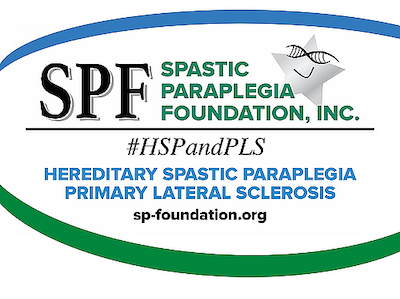WASHINGTON — A rogue Chinese scientist stunned the world last year when he announced the birth of genetically modified twin girls, prompting widespread outcry from the broader scientific community and calls for a “global moratorium” on editing human embryos that result in births.
Yet months later, Democrats on Capitol Hill surprised many science policy experts when they attempted to roll back a related, 4-year-old ban on altering the DNA of embryos intended for pregnancies.
To many health policy experts here, and research advocates across the country, the timing — just months after the biggest genome editing scandal in world history — was inexplicable. Several Republicans criticized the proposal by playing up concerns of “maverick bioengineers” operating with little oversight and without ethical norms. And while some scientists supported the effort, others expressed open confusion, in particular at the breadth of the change Democrats sought.
Within weeks of proposing to eliminate their plan, Democrats largely backed off. But their sudden effort to reverse what seemed to some like a basic ethical protection serves as a case study in how Washington regulates science — and the immense influence lawmakers, regardless of their scientific expertise, often wield over federal research.
“In terms of ‘Why now,’ it does seem odd given there is so much international conversation in the scientific community about how to limit germline editing,” said Remy Brim, a scientist and former Democratic Capitol Hill aide who works at the D.C. lobbying firm BGR.
The United States has banned germline editing with the aim of starting a pregnancy since 2015, the result of bipartisan opposition to the practice and preemptive scientific concern about the implications of the gene-editing technology CRISPR. Republicans in particular have supported the ban due to conscience concerns similar to those surrounding the use of fetal tissue in research and using federal funds for abortion — some argue that germline genome editing requires the creation of human embryos that will eventually be discarded.
When Democrats took control of the House of Representatives in last year’s midterm elections, they saw an opening to repeal a measure that many felt was overly restrictive. As the House Appropriations Committee considered the spending package that funds the Food and Drug Administration, lawmakers excluded the brief provision that has banned the consideration of certain genome-editing trials — a change that would have essentially lifted the ban, if the law had passed.
Republicans quickly criticized the change, calling it hasty and ill-advised — even specifically citing China’s “CRISPR babies” scandal, in which He Jiankui drew worldwide criticism for using the technique to alter the genes of twin girls.
“Say we take these steps to prevent a little girl from having breast cancer,” said Tara Sander Lee, the director of life sciences at the Lozier Institute, the research arm of the Susan B. Anthony List, an anti-abortion advocacy group. “Once we make that change, that’s going to be permanently sealed in her germline with completely unknown implications about how that’s going to affect our society.”
Democrats agreed to back off almost immediately. During a hearing on the bill earlier this month, committee leaders agreed instead to recommend that separate committees with more expertise in science and health reconsider the issue in the coming months.
It remains unclear why Democrats chose to pursue the change now, amid such a fraught political landscape. Publicly, at least, they said it was because they had begun to worry about the ban’s impact on legitimate scientific research.
But there may be another, simpler reason: The original amendment was authored by a Republican, aides said, leaving Democrats to almost instinctively leave it off the spending bill, the first they had authored in nearly a decade.
Reports that He’s CRISPR-edited babies might have been at increased risk for early death — if he had achieved his stated goal in the procedure — came as Democratic lawmakers were considering relaxing the genome-editing ban, the aide said, giving lawmakers even more pause.
The scientific community had been broadly divided about the ban, known as the Aderholt Amendment. While many bioethicists felt eliminating the ban would lead to unnecessary controversy regarding some forms of genome editing, others felt it would simply allow the FDA to do its job and consider trials based on their safety and efficacy.
“There is a dedicated part of government regulating the introduction of novel therapies based on evaluation of risk and benefit — the FDA,” said Dietrich Egli, a cell biology professor at Columbia University. “There is no need for a law that would prevent the FDA from working the way it is designed to.”
But the lawmakers, in some cases, appear to have fallen short of understanding the science. One even appeared to advocate precisely the kind of genetic editing that has sparked called for a global moratorium.
Rep. Debbie Wasserman Schultz (D-Fla.), during a hearing this month, touted the potential for science such that the BRCA2 mutation she carries “could be cut off in our family tree,” though she made clear she did not expect such scientific advances imminently.
Currently, scientists almost universally disapprove of such permanent, heritable genomic editing, which was without precedent in humans prior to the Chinese scandal.
Michael Werner, a partner at the law firm Holland & Knight who specializes in health care and life sciences, said he tells congressional offices regularly that right now, they have nothing to worry about with respect to those abuses. Congressional offices, however, remain cautious — perhaps overly so.
“I’ve met with many congressional offices over the years and let them know that I know of no American company using genome editing on human embryos,” said Werner. “That argument hasn’t carried the day.”
The scientific community is eager to maintain some limits on germline editing — but an increasingly vocal subset is hoping that lawmakers can loosen up a middle ground: one related to use of “three-parent” techniques to help fertility and treat rare childhood disease.
The technique, known as mitochondrial replacement therapy, is already in use, as a fertility treatment and for rare mitochondrial diseases, in the United Kingdom, Greece, and Ukraine. Now, some American researchers hope to use it to treat rare diseases occurring in between 1,000 and 4,000 U.S. births each year.
But right now, the Aderholt Amendment outlaws the practice here.
Research advocates say there’s a way for Congress to roll back the ban on MRT without opening the door to other types of heritable gene editing in or accusations of “designer babies” — or inviting the kind of political criticism that characterized this month’s appropriations debate.
“One easy, quick suggestion would be to differentiate mitochondrial replacement therapy” from the other types of germline gene editing, said I. Glenn Cohen, a Harvard law professor specializing in bioethics and health law. “That would then let FDA evaluate it directly, which it is currently prohibited from doing.”
Even some Republicans agreed — in particular Rep. Andy Harris (R-Md.), a former NIH-funded scientist, who said science has outstripped Congress and that lawmakers should reconsider the provisions relating to MRT specifically.
“In theory, if the scientific community wanted to advance this ball in the U.S., it probably would be easier because some academics could start some mitochondrial replacement trials,” Werner said.
Nobody in industry is currently using germline editing to create embryos without disease traits, he reiterated, and “nobody in industry even seems to want to go down that road.”















